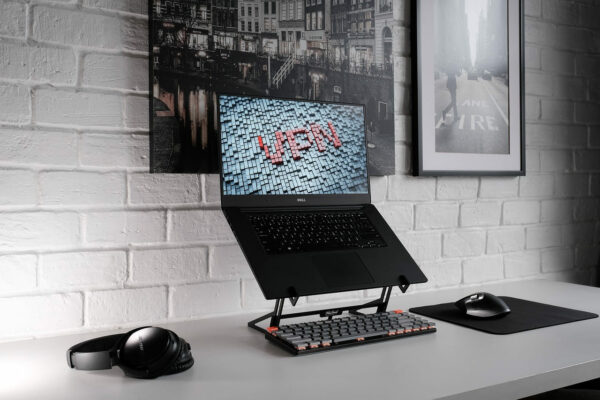✅ Last checked on
In today’s digital landscape, ensuring the security of your online activities is of paramount importance. With cyber threats becoming increasingly sophisticated, the need for robust network security measures has never been greater. One effective tool in this endeavor is the Virtual Private Network (VPN).
This article delves into the world of network security VPN, shedding light on its role in enhancing online safety.
Network Security VPN: Enhancing Your Online Safety

In a world where information travels across the globe within seconds, protecting your data from prying eyes and potential threats is vital. A Network Security VPN, or Virtual Private Network, serves as a shield, creating a secure and encrypted connection between your device and the internet. This encryption prevents unauthorized access, making it a powerful tool for enhancing your online safety.
How Does a VPN Work?
A VPN works by routing your internet traffic through a secure and private server before reaching its destination. This process involves the following steps:
- Data Encryption: When you access the internet through a VPN, your data is encrypted. This means that even if someone intercepts the data, it appears as a jumble of characters without any meaning.
- Server Connection: Your encrypted data is transmitted to a remote server operated by the VPN provider. This server could be located in a different country.
- Changing IP Address: Once your data reaches the VPN server, it’s assigned a new IP address. This step adds an extra layer of anonymity, making it difficult for websites and online services to trace your original location.
- Accessing the Web: The VPN server then forwards your data to the destination website or online service. The website, in turn, responds to the VPN server, which relays the information back to you after decrypting it.
Benefits of Using a Network Security VPN
A network security VPN offers several noteworthy benefits:
- Enhanced Privacy: By masking your IP address and encrypting your data, a VPN ensures that your online activities remain private. This is particularly important when using public Wi-Fi networks, which are often vulnerable to attacks.
- Bypassing Geographical Restrictions: Some online content is restricted based on geographical location. With a VPN, you can connect to a server in a different country and access content that might otherwise be unavailable in your region.
- Secured Data Transmission: Whether you’re sending sensitive emails, making online payments, or accessing confidential work documents, a VPN ensures that your data is transmitted securely, safeguarding it from potential hackers.
- Protection on Public Networks: Public Wi-Fi networks are notorious for their lack of security. Hackers can easily intercept data on these networks. A VPN adds an extra layer of security, making it safe to use public Wi-Fi without worrying about data breaches.
- Anonymity: A VPN masks your online identity, making it difficult for websites and online services to track your browsing habits. This protects you from targeted ads and unwanted surveillance.
Choosing the Right VPN for Your Needs
Not all VPNs are created equal, so selecting the right one for your needs is crucial. Here are some factors to consider:
- Security Protocols: Look for VPNs that offer strong encryption protocols like OpenVPN or IKEv2. These protocols ensure that your data remains secure during transmission.
- Server Locations: Depending on your requirements, choose a VPN with servers in the locations you need. More server locations provide greater flexibility in accessing geo-restricted content.
- No-Logs Policy: Opt for a VPN provider that has a strict no-logs policy. This means they don’t store records of your online activities, enhancing your privacy.
- Speed and Performance: Some VPNs may slow down your internet connection. Look for reviews and speed tests to ensure that the VPN you choose maintains fast speeds.
- User-Friendly Interface: A user-friendly interface and easy setup process can make your VPN experience hassle-free.
- Customer Support: Reliable customer support can be a lifesaver if you encounter any issues while using the VPN.
FAQs
Can I use a VPN on my mobile device?
Absolutely! Many VPN providers offer dedicated apps for smartphones and tablets, allowing you to protect your data on the go.
Is using a VPN legal?
Yes, using a VPN is legal in most countries. However, its legality can vary, so it’s advisable to check the laws in your region.
Are free VPNs safe to use?
While free VPNs can be tempting, they may compromise your security and privacy. Paid VPNs often offer better security features and performance.
Can I use a VPN to stream content?
Yes, a VPN can help you bypass geographical restrictions and access streaming content from different regions.
Will a VPN prevent all online threats?
While a VPN adds a layer of security, it’s not a one-size-fits-all solution. It’s important to combine VPN usage with other security measures, such as updated antivirus software.
How do I set up a VPN?
Setting up a VPN is typically straightforward. Most VPN providers offer step-by-step guides for installation and configuration.
Conclusion
In an era where online threats are a constant concern, a network security VPN emerges as a reliable ally in enhancing your online safety. By encrypting your data, masking your identity, and providing a secure tunnel for your internet traffic, a VPN empowers you to navigate the digital world with confidence. Whether you’re concerned about privacy, accessing restricted content, or securing sensitive information, a VPN is a valuable tool that can significantly bolster your online security.